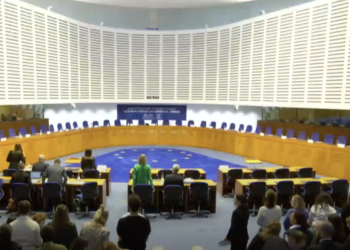In a significant ruling, the European Court of Human Rights has declared a violation of Wałęsa’s rights, spotlighting ongoing concerns over Poland’s judiciary reforms.
On 23 November 2023, the European Court of Human Rights has found Poland in violation of fundamental rights in the case involving Lech Wałęsa, the former Polish President and a well-known figure in the fight against communism.
The case started with Wałęsa’s defamation lawsuit in 2005 against Mr. Wyszkowski, who had publicly claimed that Wałęsa collaborated with communist security services. Although Wałęsa initially won the case, a series of legal changes and appeals followed, leading to a significant twist in 2020. The Polish government, using new legal powers from changes made in 2017, challenged the earlier court decision in Wałęsa’s favor.
The European Court, in its decision, pointed out serious issues with the new legal process used by the Polish government. It highlighted that the method for challenging court decisions, introduced in 2017, was unpredictable and gave too much power to government authorities. This process, the Court found, was not in line with the expected standards of a fair legal system. Moreover, the Court observed that Wałęsa’s right to privacy was significantly affected by reversing the earlier court decision.
A key statement from the Court criticized the new legal chamber (CERPA) set up in Poland for handling such appeals. The Court said, “CERPA, lacking the attributes of an ‘independent and impartial tribunal,’ led to a re-examination of a case that had already been decided. This misuse of the procedure reflected the State authority’s own political motives”.
This ruling is significant beyond Wałęsa’s case. It serves as a critical comment on Poland’s judicial system, especially the changes made in 2017. The European Court has asked Poland to quickly and effectively revise its legal system to align with international standards of independence and impartiality in the judiciary.
As Poland considers these recommendations, the verdict is a reminder of the delicate balance between government power, freedom of expression, and individual rights in a democratic society. The international community will be keeping a close eye on how Poland responds to this pivotal judgment.






